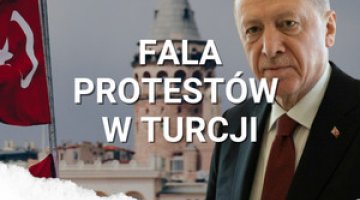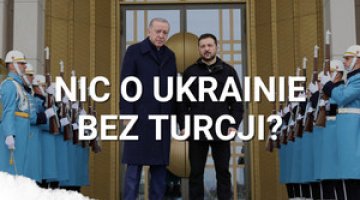Turkey: consolidation within the opposition party amid anti-government protests
On 6 April, the Republican People’s Party (CHP) – Turkey's main opposition force – held an extraordinary congress in Ankara. In the 2024 local elections, the party secured the highest share of votes nationwide (currently enjoying the support of around 30% of voters), thereby posing a challenge to the ruling Justice and Development Party (AKP). With a substantial majority, the congress re-elected the incumbent leader, Özgür Özel, for a second term; he was the sole candidate. Özel announced plans to continue the ongoing anti-government protests (under way since 19 March), to launch a signature campaign for early parliamentary and presidential elections, and reiterated his call for a consumer boycott of companies linked to the authorities.
The extraordinary congress aimed to consolidate the party. Its organisation was prompted by the threat of a trustee board being imposed, due to allegations of irregularities during previous internal elections. The event took place against the backdrop of protests triggered by the dismissal and arrest of Istanbul Mayor Ekrem İmamoğlu – a popular CHP figure and the party’s candidate for the 2028 presidential election. The CHP’s political objective is to push for early elections with İmamoğlu as its nominee.
Commentary
- Turkey is witnessing its largest wave of protests in over a decade, sparked by the 19 March detention, subsequent arrest, and dismissal of Ekrem İmamoğlu – the CHP’s candidate for the president (see: ‘Turkey: Wave of protests following the arrest of Istanbul mayor’). While the CHP is the main organiser of the demonstrations, unaffiliated students – concerned about their future in a country weakened by a prolonged economic crisis and growing authoritarian tendencies – are particularly active. Approximately 2,000 people have been detained in connection with the protests, with over 300 formally arrested, including journalists covering the events.
- The CHP aims to weaken the current government and force early elections. The success of this strategy will depend on sustaining the engagement of opposition-minded segments of society. The party is clearly attempting to keep the street protests under control in order to prevent escalation and minimise the risk of clashes with security forces. It is seeking to channel the energy of the demonstrations by organising weekly rallies in support of İmamoğlu in Istanbul, as well as nationwide protests. This approach includes the signature campaign for early elections announced during the party congress, and the full consumer boycott on 2 April, when the opposition called on the public to refrain from all purchases. The economic impact of this boycott remains difficult to assess at this stage.
- The opposition’s actions have triggered a strong response from the authorities, who are attempting to portray it as a disruptive force causing chaos, and its initiatives as detrimental to Turkey and its economy. Özgür Özel is likely to become the next target of the politically influenced judiciary. Senior figures within the ruling bloc have signalled that legal proceedings could be launched against him for allegedly acting against the interests of the state–citing his calls for a consumer boycott–or for insulting the head of state, after referring to President Recep Tayyip Erdoğan as a “junta leader” during the congress. In the longer term, such proceedings could result in Özel being excluded from public life.
- The pro-Kurdish Peoples’ Equality and Democracy Party (DEM) has cautiously expressed support for the protests but has not yet joined them, due to concerns over how the demonstrations might affect the so-called ‘Kurdish opening’–a process in which the government has been negotiating the voluntary dissolution of the Kurdistan Workers’ Party (PKK; see: ‘A 'new Kurdish opening' in Turkey: a bumpy road to peace’). This process has been suspended since the outbreak of the protests. A meeting between a DEM delegation and the president is scheduled for this week.




